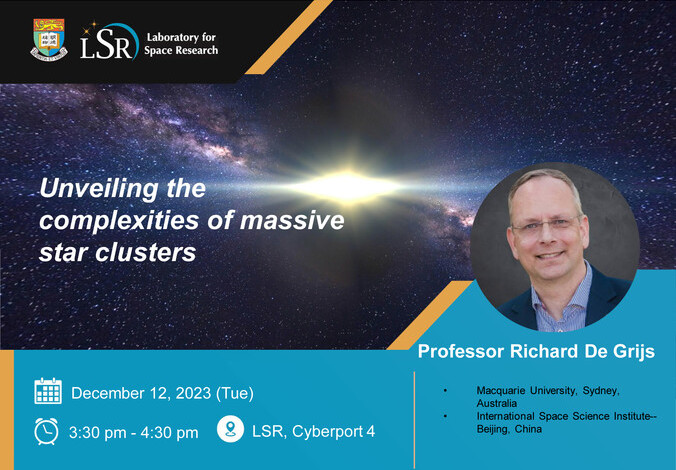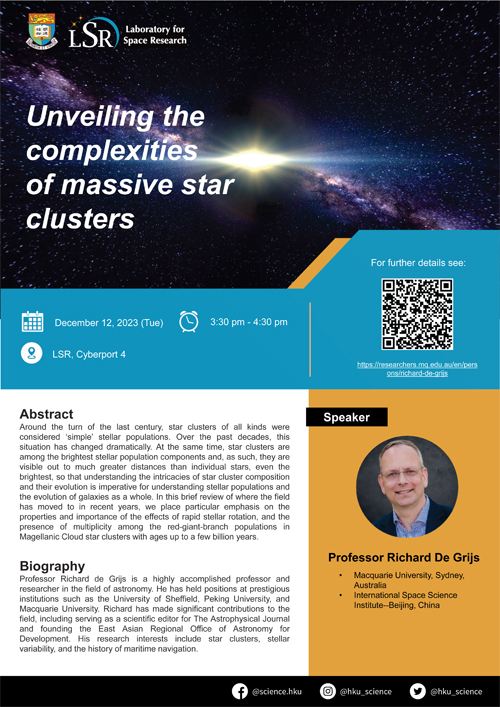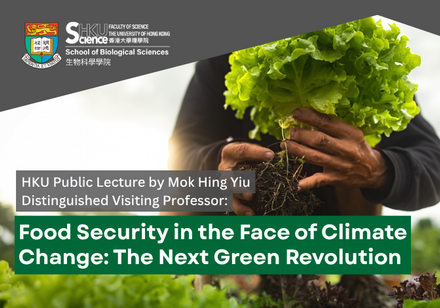Laboratory for Space Research (LSR) Distinguished Visiting Professor Colloquium: Unveiling the complexities of massive star clusters

- Date & Time
- December 12, 2023 (Tuesday) | 3:30pm
- Venue
- Laboratory for Space Research, Room 405B, 4/F, Block A, Cyberport 4, Hong Kong
- Language
- English
- Speaker
- Professor Richard De Grijs
Macquarie University, Sydney, Australia & International Space Science Institute--Beijing, China
Around the turn of the last century, star clusters of all kinds were considered ‘simple’ stellar populations. Over the past decades, this situation has changed dramatically. At the same time, star clusters are among the brightest stellar population components and, as such, they are visible out to much greater distances than individual stars, even the brightest, so that understanding the intricacies of star cluster composition and their evolution is imperative for understanding stellar populations and the evolution of galaxies as a whole. In this brief review of where the field has moved to in recent years, we place particular emphasis on the properties and importance of the effects of rapid stellar rotation, and the presence of multiplicity among the red-giant-branch populations in Magellanic Cloud star clusters with ages up to a few billion years.

Speaker Professor Richard De Grijs
Macquarie University, Sydney, Australia & International Space Science Institute--Beijing, China
Professor Richard de Grijs is a highly accomplished professor and researcher in the field of astronomy. He has held positions at prestigious institutions such as the University of Sheffield, Peking University, and Macquarie University. Richard has made significant contributions to the field, including serving as a scientific editor for The Astrophysical Journal and founding the East Asian Regional Office of Astronomy for Development. His research interests include star clusters, stellar variability, and the history of maritime navigation.





